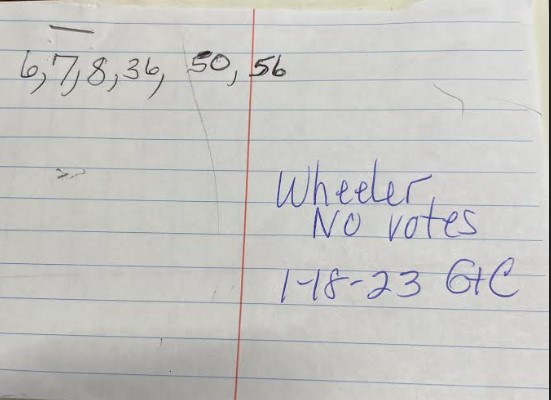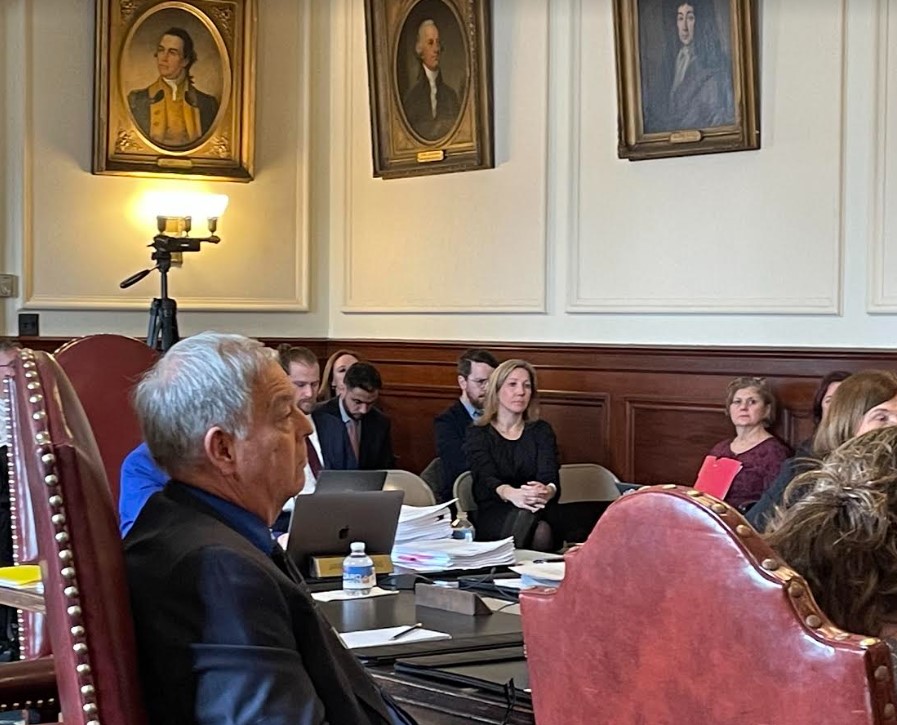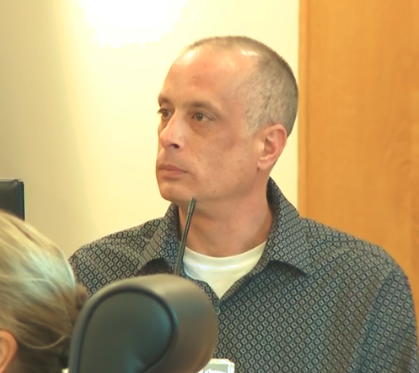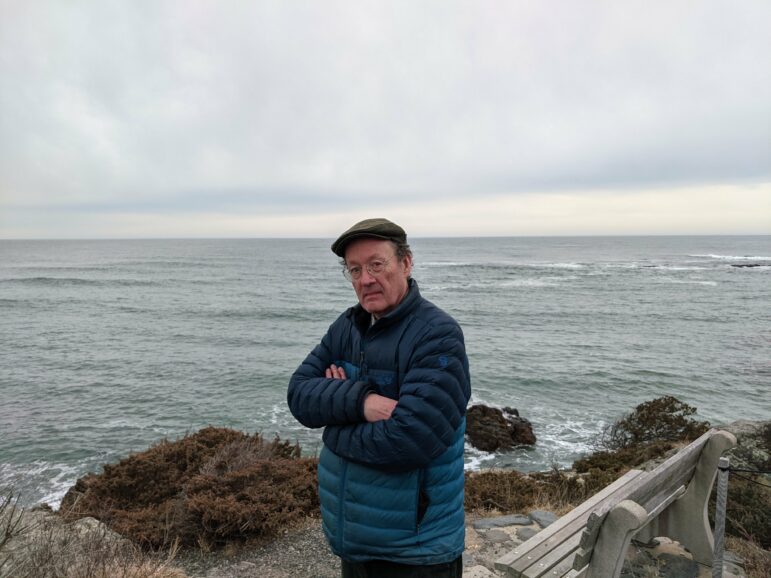
By PAULA TRACY, InDepthNH.org
CONCORD – Republican Executive Councilor David Wheeler of Milford was confronted by Councilor Cinde Warmington, D-Concord, Wednesday about his practice of what she called “silent voting,” recording votes for the record after the Executive Council meeting adjourns when the matters pass on voice votes.
While Attorney General John Formella said it was permissible, past practice and officials noted the largely “no” votes made no change in the outcomes.
Warmington said it was hardly transparent and questioned whether it was within the law.
After the meeting Warmington said the council should change its procedures so the public knows what the councilor’s votes are at the time of the meeting, not in minutes that are finalized two weeks or more later.
In her second two-year term, Warmington said she discovered the issue when she would review the draft minutes. She thought that Wheeler’s votes on some contracts were a misprint or in error by the Secretary of State’s Office in the transcript.
But instead, she said she found that at the end of meetings, Wheeler would routinely go up to the recording secretary with a list of his votes, often “no” votes to contracts which Warmington thought were the other way.
“Councilor Wheeler confirmed with me that on some items he remains silent during the voice vote but then submits his opposition to the item in writing after the meeting. The Secretary of State records these after-the-fact silent votes in the minutes just as if Councilor Wheeler had voted ‘no’ at the time the vote was taken.
“Having previously reviewed the manual of procedures governing executive council actions, I recalled that the manual of procedures had specific language addressing this matter. It states that if councilors present at a meeting choose to remain silent or otherwise abstain from voting, their silence or abstinence will be taken as acquiescence or concurrence in the action taken by a majority of the votes cast,” she said.
Warmington, an attorney, noted there is a 1953 Supreme Court case on the matter. She said the attorney general has concluded there is no legal impediment to Wheeler or other councilors continuing this practice.
“I believe that the public has a right to know how all councilors voted,” she said calling the council the most transparent in our government.
“It is directly contrary to the public interest to allow councilors to hide their votes from the public. That said, if councilors are allowed to vote in writing while remaining silent, the public has the right to understand the rules governing that conduct and therefore I have a few questions for the attorney general,” Warmington said.
Wheeler said he took “umbrage” to the concept that this is a new practice and said he has been doing it since his time in the Senate 34 years ago. He said allegations that he was hiding something with his votes are “absurd.”
Attorney General Formella was asked how long after a council meeting a councilor has to make their vote among other questions.
Formella answered that the 1953 case was not about the practice Warmington is concerned about.
He said the state Senate has had a long practice of allowing for the recording of a vote up to two business days after the vote was taken.
He said the procedure could be amended if the governor and council chose to change it but it has been past practice.
Formella said his understanding is that Wheeler’s practice is to turn in his votes at the end of the meeting.
After it’s adjourned? Warmington asked.
Formella said: “I don’t think it’s a line you draw minute by minute.”
What is the official vote on an item? she asked.
“At the end, it’s still a silent vote. It’s a piece of paper passed,” she said without any public announcement or knowledge.
Formella said: “I wouldn’t say that it’s silent. It’s a recorded vote,” when the minutes are approved, usually at the next meeting which is normally two weeks after.
If a governor announces that it was a unanimous vote and the councilor still remains silent, is that acquiescence? Warmington asked.
“My understanding is the practice includes sometimes still reporting a ‘no’ vote at the end even as announced, the vote is unanimous,” Formella said.
“Okay, now the paper that Councilor Wheeler hands to the Secretary of State’s office, is that a public record?”
Yes, Formella said.
When does the public get access to that record, she asked.
“I would say once it is given to the Secretary of State,” Formella said.
“Does it have to go through a right-to-know request to get access to the record?… Just how long does the public have to wait to know how Councilor Wheeler has voted,” said Warmington.
“I would say that it is immediately available,” he said.
Sununu interrupted and asked if the meeting minutes were available to the public before they are finalized.
They are not.
“So technically, could someone come in a week later before they are publicly recorded and change a vote?” Sununu asked.
Formella said: “No, I don’t think so. The practice is that it happens right after. That is the longstanding practice…you have to stay consistent with that.”
“I don’t know,” Warmington said.
“Those are technically on file somewhere?” Sununu asked, and that was confirmed by the recording secretary who showed stapled notes to her notepad.
After the meeting, the Secretary of State produced the notes from Wheeler not only for the meeting Wednesday but for all the meetings this year which were photographed by InDepthNH.org.
It appears Wheeler has voted “no” on about six agenda items, on average which may or may not have been picked by the recording secretary from the Secretary of State.
At the last meeting, there were a number of Health and Human Services contracts Wheeler voted against on paper, and one on homeless housing, Warmington said.





